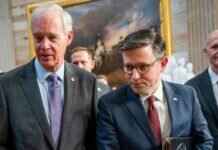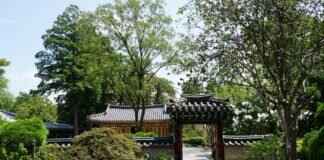In a recent development that has sparked outrage and confusion, a Maryland man was mistakenly deported by the government. The lawyer representing the man has criticized the government for its lack of transparency and information regarding the case.
Government Secrecy and Criticism
The story of the mistaken deportation of a Maryland man has left many scratching their heads and wondering how such an error could occur. The man, who has not been named for privacy reasons, was wrongfully deported by government officials, leading to a chaotic and emotional situation for him and his family. The lawyer representing the man has been vocal in his criticism of the government’s handling of the case, accusing them of playing a “game” by not providing crucial information about the incident.
The lack of transparency surrounding the case has raised serious concerns about the government’s immigration policies and procedures. The lawyer has expressed frustration at the government’s refusal to provide details about how the mistake happened and what steps are being taken to rectify it. He has called for a swift resolution to the case, expressing confidence that the Supreme Court will intervene and bring justice to his client.
The Maryland man’s mistaken deportation serves as a stark reminder of the human impact of government actions and the importance of accountability and transparency in the immigration system. The lawyer’s criticism highlights the need for greater oversight and communication from government agencies to prevent similar errors in the future.
Expert Analysis and Political Fallout
Experts in immigration law have weighed in on the case, expressing shock and concern at the government’s mishandling of the situation. One expert remarked that the mistaken deportation reflects a broader trend of government incompetence and lack of accountability in immigration enforcement. The case has reignited debates about the need for comprehensive immigration reform and stricter oversight of government agencies responsible for enforcing immigration laws.
Politicians and lawmakers have also commented on the case, with some calling for investigations into the government’s handling of the incident. The Maryland man’s mistaken deportation has become a political flashpoint, with both sides of the aisle expressing outrage and demanding answers from government officials. The case has underscored the need for greater transparency and accountability in immigration enforcement to prevent similar errors from occurring in the future.
As the story of the Maryland man’s mistaken deportation continues to unfold, it serves as a sobering reminder of the human cost of government mistakes and the need for greater oversight and accountability in the immigration system. The lawyer’s criticism and calls for swift resolution highlight the urgency of addressing systemic issues within government agencies to prevent similar errors from happening again.
Overall, the case of the mistaken deportation of a Maryland man sheds light on the challenges and complexities of the immigration system and the importance of transparency and accountability in government actions. It serves as a cautionary tale of the need for reform and oversight to ensure that such errors are not repeated in the future.















